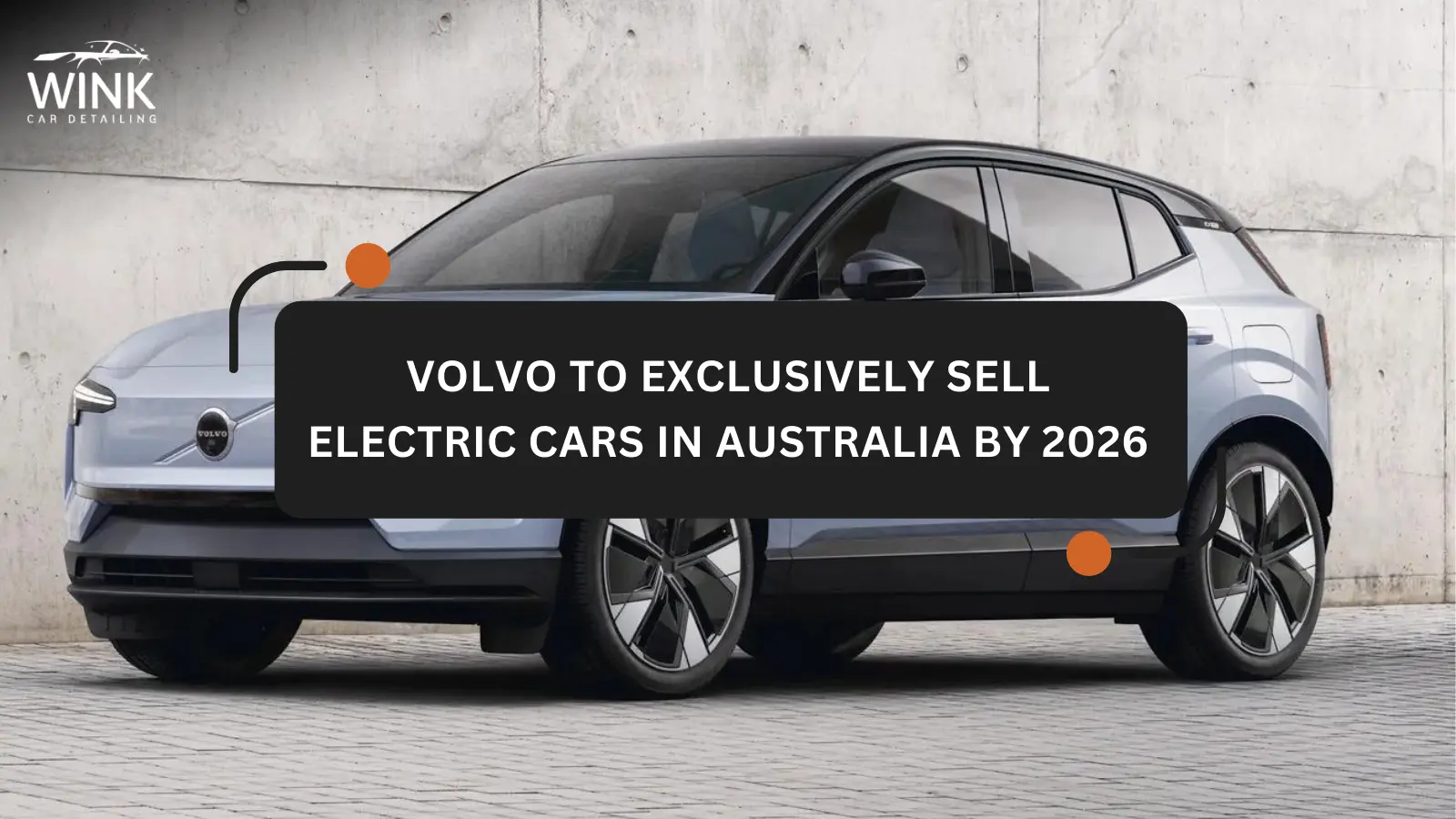VOLVO TO EXCLUSIVELY SELL ELECTRIC CARS IN AUSTRALIA BY 2026
In 2026, Volvo will exclusively offer electric cars for sale in Australia. This means they'll only offer cars that run on electricity, not gasoline. They're doing this because more people in Australia want cars that don't produce pollution. Volvo also wants to become more popular among people who like luxury cars.
It goes against Volvo's plan from Sweden, which wanted to switch to all electric cars by 2030. But Volvo Australia's boss, Stephen Connor, thinks now is the right time to make the change. By switching to electric cars sooner in Australia, Volvo hopes to be ahead of other car companies. It shows that Volvo cares about what people want and about protecting the environment.
Volvo wants to sell cars that don't harm the environment and are also comfortable and nice to drive. With Stephen Connor leading Volvo Australia, the company aims to make more electric cars popular in Australia. And they want to show that electric cars can be just as good, if not better, than traditional cars, and help make the world cleaner.
Australia's Move Away from Gasoline Engines
Stephen Connor, Volvo's managing director in Australia, sees a promising opportunity in the current market landscape. It emphasizes that consumers are ready for a change, citing the remarkable sales growth of Tesla as a driving force behind this shift.
Acknowledging Tesla's pioneering role in transforming the automotive industry, Connor commends the EV only brand for revolutionizing perceptions and setting new standards. Stephen expresses Volvo's intention to build upon Tesla's groundwork, leveraging their success to propel Volvo's own electric ambitions forward.
As part of its strategy, Volvo announces a decisive move away from petrol and diesel powered vehicles in Australia. Over the next few years, the brand will gradually phase out its existing model lineup, introducing a new electric vehicle every 12 months.
The XC60, a popular mid-sized model, will mark the end of Volvo's era with internal combustion engines in Australia. Connor anticipates this transition to occur by late 2025 or no later than 2026.
Confident in the benefits of embracing electric mobility, Connor predicts significant returns on investment for Volvo. He anticipates leaving competitors trailing behind as Volvo paves the way for a greener and more sustainable automotive future in Australia.
Volvo's Vision for Electric Dominance
Stephen Connor, leading Volvo's charge into the electric vehicle (EV) era, forecasts a crowded automotive market by 2030. It anticipates rapid changes accelerating even further, leaving manufacturers reliant on diesel and traditional internal combustion engine (ICE) vehicles struggling to keep pace.
Connor observes that some automakers have underestimated the speed of market transformation. In just two years, EVs have transitioned from niche to mainstream, largely propelled by the success of Tesla.
"The key to success in this rapidly evolving market," Connor asserts, "is understanding consumer sentiment. Failure to do so risks being left behind." Hence, Volvo's proactive approach to embracing electric mobility ahead of the curve.
Central to Volvo's imminent EV transition is a strategic plan to expand market share and establish itself as a formidable competitor in the electric car realm, challenging the dominance of Tesla and its sibling brand, Polestar.
"I envision us selling 20,000 electric units by 2026, capturing a 2% market share," Connor shares, underscoring Volvo's ambitious aspirations for electrification. Its ambitious goal underscores Volvo's commitment to leading the electric revolution, setting its position as an industry leader in sustainable mobility.
- More Sales Expected: If Volvo reaches its goal of selling 20,000 electric cars, it would be a big achievement. That's more than double the number of cars they sold in 2021, which was 9,028. Volvo is really confident in electric cars and thinks more people in Australia will want them.
- Beating Audi: Volvo might end up selling more cars than Audi, which is currently in third place in Australia for selling luxury cars. Audi is behind Mercedes-Benz and BMW. But with Volvo focusing on electric cars, they could move ahead of Audi. There's also a chance Tesla could do the same, changing things up in the luxury car market.
- More Electric Cars Coming: Volvo plans to start selling at least 5,000 of its XC40 and C40 electric cars next year. They think the XC40 Pure Electric model could be their bestseller in 2023. It shows Volvo is really serious about making more electric cars available for people to buy.
- Support from Sweden: Volvo's headquarters in Sweden is helping them get more electric cars to Australia. Some other car companies have had trouble convincing their headquarters to send lots of electric cars to Australia because there aren't strict pollution rules here. But Volvo's Swedish office is backing them up, which means more electric cars for Australians.
- Charging Stations at Dealerships: Volvo also plans to put fast charging stations at every dealership. These stations will let people charge their electric cars quickly, and Volvo will let customers use them for free. It's part of Volvo's plan to make possessing an electric car easier and to help the environment.
We're determined to install fast chargers at each of our locations starting in the upcoming year. And guess what? They'll be free for every customer to use, Connor affirms.
He makes it clear that the goal of this program is to promote greater connection between Volvo owners and dealerships, particularly at a time when extended maintenance times for EVs may result in fewer encounters with consumers.
Connor also emphasizes how important it is to provide a smooth and practical experience for Volvo's expanding fleet of electric vehicle owners. Volvo aims to lower challenges to EV ownership and build closer bonds with its customers by providing free access to fast chargers at every dealership.





